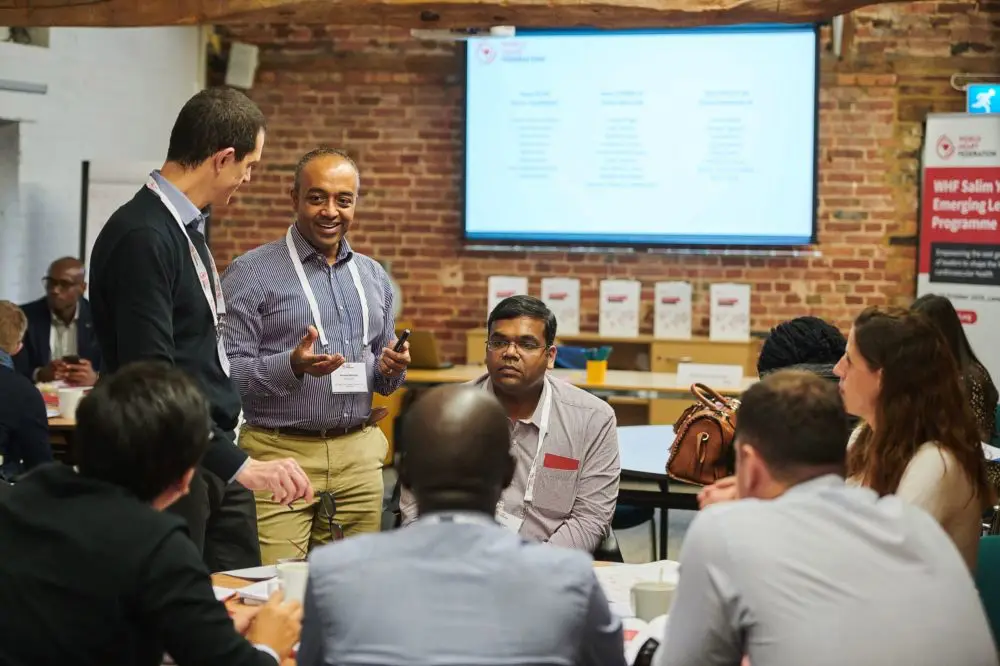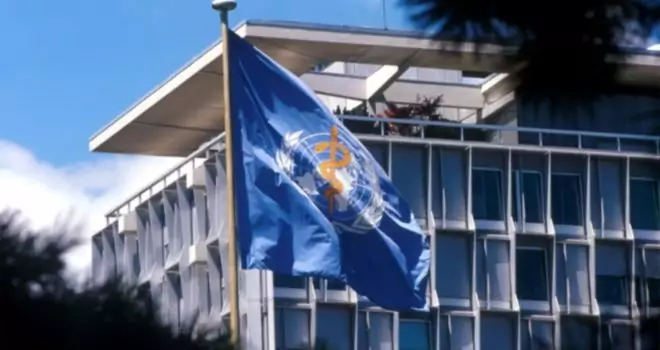Return to Emerging Leaders Home
Applications for the Salim Yusuf Emerging Leaders Programme 2026 are now open.
In 2026, the Salim Yusuf Emerging Leaders Programme will focus on integrated care of cardiovascular disease (CVD) and multiple long-term conditions (MLTCs), addressing the growing global challenge of multimorbidity and its impact on health systems, patients, and communities. The programme will take place from 29 November to 3 December 2026 and will be hosted by Menarini Foundation at their House of Sciences in Fiesole (Florence), Italy, offering a four-day, in-person seminar for selected candidates.
Launched in 2014 by World Heart Federation (WHF) Past President, Professor Salim Yusuf, the programme provides advanced training and networking opportunities in cardiovascular health policy and implementation research. It is designed for healthcare professionals, researchers, and global health advocates dedicated to driving meaningful change in cardiovascular care. Each year, the WHF seeks a diverse pool of applicants from academia, civil society, healthcare, and the private sector. While affiliation with a WHF member organization is encouraged, it is not a requirement for participation.
The selected cohort will participate in four days of intensive seminars, workshops, and group work supported by international experts Prof Denis Xavier (India), Prof Clara Chow (Australia), Dr Maria Fernandez (USA) and Prof Pablo Perel (Switzerland) among others and will be focused on developing implementation research projects related to integrated models of care for CVD and MLTCs.
This hands-on experience will enable emerging leaders to critically examine how integrated care pathways, digital health tools, community-based interventions, and policy innovations can strengthen CVD prevention and management in the context of CVD and multimorbidity, with a strong focus on real-world implementation and sustainable impact.
“Reasons to apply to join the Emerging Leaders Programme? Fantastic peers, mentors and networks. Reasons not to? None. Join a growing community of early-career professionals focused on global approaches to CVD prevention.”
Prof Amitava Banerjee, WHF Board Member 2025-2026 & Emerging Leader 2014
Application Requirements
The selection committee will expect candidates to demonstrate their passion for improving CVD care and making a difference at the grassroots level and beyond.
Applicants are requested to submit the following (in English) by Monday 16 March 2026:
- Completed online application form
- Motivation letter
- 1-minute video
- A published writing example
- Letter of support from institution and WHF member organization (if applicable)
- Request for travel support (if applicable)
Selection Criteria
Applicants must:
- Be able to communicate fluently in verbal and written English.
- Early and mid-career professionals who have completed their training or tertiary education.
- Demonstrate leadership abilities and skills, either through formal leadership roles or examples of leadership in recent or current projects.
- Demonstrate written communication abilities through a recently published manuscript or another scholarly article.
- Demonstrate productivity relevant to their field and context, such as peer-reviewed publications, grants awarded, projects led and completed, or other field-specific indicators.
How To Apply
Application deadline: Monday 16 March 2026
Notification of successful applicants: By end of June 2026
If you have any questions, please email emergingleaders@worldheart.org
Emerging leaders shorts
Latest News
Advancing ambitious ncd and cardiovascular agendas at who Executive Board 158
The World Heart Federation (WHF) actively represented the global cardiovascular community at the 158th session of the World Health Organization (WHO) Executive Board, which was held from 02 to 07 February 2026 in Geneva, Switzerland. The WHF delegation, headed by Dr. Bente Mikkelsen, Chair of its Advocacy Committee, delivered a series of statements across multiple […]
Economics of Health for All
Primary Health Care
Well-Being and Health Promotion
Positioning Health as a Foundation for Social and Economic Development
This constituency statement was led and delivered by NCD Alliance, with contributions from the World Heart Federation, under agenda item 26 – Economics of Health for All – at the 158th session of the WHO Executive Board. Distinguished delegates, We welcome WHO’s strategy on the Economics of Health for All. The strategy rightly positions […]
Noncommunicable Diseases
Advancing Well-Being through Action on the Determinants of NCDs
This constituency statement was led and delivered by the World Heart Federation under agenda item 23 – Well-Being and Health Promotion – at the 158th session of the WHO Executive Board. This statement is delivered by the World Heart Federation on behalf of… World Stroke Organization (WSO) International Society on Thrombosis and Haemostasis (ISTH) International […]
Noncommunicable Diseases
Leaving No One Behind: Integrating NCDs into Health Emergencies and Humanitarian Settings
This constituency statement was led and delivered by the World Heart Federation under agenda item 16 – WHO’s Work in Health Emergencies – at the 158th session of the WHO Executive Board. This statement is delivered by the World Heart Federation on behalf of… World Stroke Organization (WSO) Global Alliance for Tobacco Control (GATC) International Society […]
Noncommunicable Diseases



